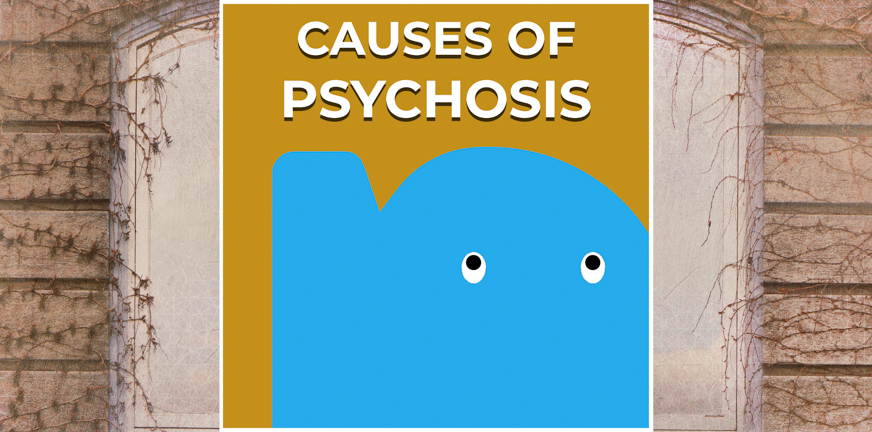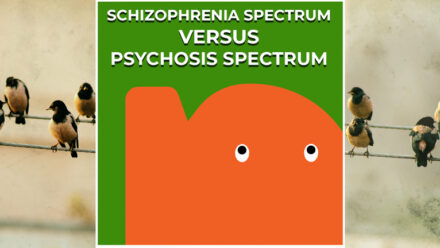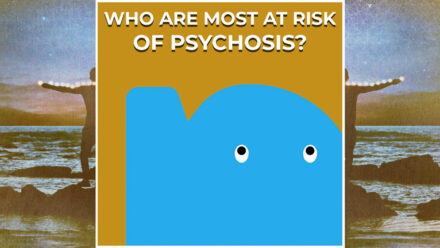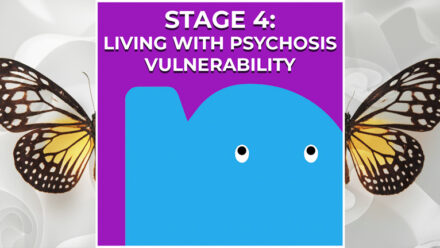
Each and every person can become psychotic – because we all tend to see meaning in the things around us. Too much meaning becomes a state of ‘hyper-meaning’ – which is psychosis. Many people experience a degree of psychosis, below the level of clinical severity, as part of normal development. Nobody understands exactly what causes clinical psychosis.
Sometimes it seems to run in the family and vulnerability is passed on from one generation to the next. And with other people, there a clear connection to past events. Read more about the possible causes of psychosis.
- Dopamine
- Trauma
- Drugs & alcohol
- Psychosis after childbirth (postpartum psychosis)
- Triggers
- Who are most at risk of psychosis?
Psychosis in the family
If you have a brother or sister (or other close relative) with psychosis, the probability that you might get it too is larger than for people who have no psychosis in their family. Studies show that this is not only because families share the same genetic sensitivities, but also grow up in the same environment. Genetic studies have identified many genetic risk variants that contribute to the risk of psychosis but their joint contribution is small. In fact, each and every person carries thousands of genetic risk variants for psychosis. It simply is part of the human ability to see meaning in the world around us. Therefore, the influence of genes on clinical psychosis likely is much smaller than was previously thought.
Psychosis vulnerability and environmental influences
However, you can´t predict who will become psychotic simply by their family history. Many different environmental factors also play a part in the development of psychosis vulnerability. For instance, belonging to a minority group in society (ethnic, religious, etc.) increases the risk. Studies also show that people in large cities develop psychosis more often than in rural areas. The idea is that an urban environment seems to increase the risk because it could cause a chronic sense of insecurity, overstimulation or loneliness.
Psychosis and trauma
When you have experienced trauma (like sexual abuse, violence or bullying) between the ages of five to fifteen, this can increase your vulnerability for psychosis. Young people who grow up in an ‘unsafe’ environment, appear to get psychosis symptoms as a result of stress more quickly as adults. Learn more about Psychosis and trauma.
Drugs and psychosis
Drug use can trigger psychosis. Cannabis, LSD, speeds, coke and ‘magic mushrooms’ are known to potentially play a part because they are ‘psychotogenic’ or ‘hallucinogenic’ and affect the brain neurochemical systems. Learn more about drug use and psychosis.
Psychosis after childbirth
Sometimes psychosis develops soon after giving birth. This is called postpartum (or puerperal) psychosis. Learn more about this on the postpartum psychosis page.
The main insight is that the cause of psychosis vulnerability is never just genetic or just environmental. The cause is always a mix between:
- The natural human tendency to see meaning around us – a state of ‘hyper-meaning’ then becomes ‘psychotic’.
- To what extent you naturally respond to stress with psychotic symptoms and other psychological problems.
- How well you can handle psychotic symptoms, depression, mania, motivational and cognitive symptoms.
- Your genetic sensitivities.
- Influences from the past and present environment.
To illustrate: the risk of psychosis due to cannabis use is higher among people who already have a greater genetic risk of psychosis. The combination of cannabis use and genetic risk strengthen each other.
In short
Psychosis susceptibility never has a single cause, but is determined by your own resilience (strengths) and vulnerability (weaknesses), combined with various environmental factors that can increase risk or offer protection.




